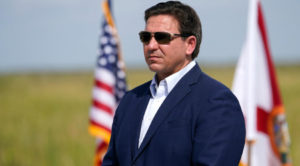In a surprising move, the White House, in collaboration with the Department of Energy (DOE), has decided to halt the permitting process for several proposed liquefied natural gas (LNG) export terminal projects. This unprecedented decision stems from concerns raised by climate activists regarding the potential impact of these projects on climate change. The pause is intended to facilitate a comprehensive environmental review of the carbon emissions associated with the projects, a process anticipated to take over a year.
Energy Secretary Jennifer Granholm, in a press call, emphasized the need for a thorough analysis of economic, environmental, and national security considerations, stating that this action includes a pause on pending applications for exports of U.S. natural gas as LNG to non-free trade agreement countries. Granholm expressed the administration’s commitment to affordable energy, economic opportunities, energy security, and addressing climate change.
While the specific projects affected by the pause remain unclear, a senior administration official indicated that at least two have a larger capacity and two have a smaller capacity. The pause primarily impacts projects that have undergone the Federal Energy Regulatory Commission’s (FERC) approval process and are awaiting DOE approval. Federal data indicates that there are 11 projects approved by FERC but not yet under construction, with an additional four pending before FERC and two in the pre-filing stage.
Opposition to LNG export terminals has been prevalent among Democrats and environmentalists, who argue that these projects contribute to harmful pollution and exacerbate global warming. The move aligns with the Biden administration’s commitment to transitioning away from fossil fuels and addressing climate change. However, proponents of additional LNG export facilities emphasize their importance in meeting energy demand in Europe and Asia, particularly as nations seek alternatives to Russian natural gas.
Former FERC Chair Neil Chatterjee criticized the decision, emphasizing the commitment made to European allies to provide LNG support. He argued that U.S. LNG has a cleaner production process than Russian sources, contributing to lower global carbon emissions. Industry associations, including the American Petroleum Institute (API), have expressed concerns over the potential ramifications of the pause on global energy markets, U.S. jobs, and climate progress.
Energy associations Eurogas and the Asia Natural Gas & Energy Association (ANGEA) have voiced strong support for continuing the permitting of U.S. LNG export terminals. They underscored the critical role of such exports in reducing dependence on Russian natural gas and meeting decarbonization goals in Europe and Asia. Proponents also argue that increased LNG exports would aid in the world’s transition to cleaner energy sources, reducing reliance on coal-fired power generation with a higher carbon footprint.
While climate activists celebrate the pause as a step towards addressing environmental concerns, critics argue that it jeopardizes energy security, breaks promises to allies, and overlooks the potential benefits of U.S. LNG in reducing global emissions. The decision highlights the ongoing debate between environmental considerations and economic imperatives in shaping the nation’s energy policy.





